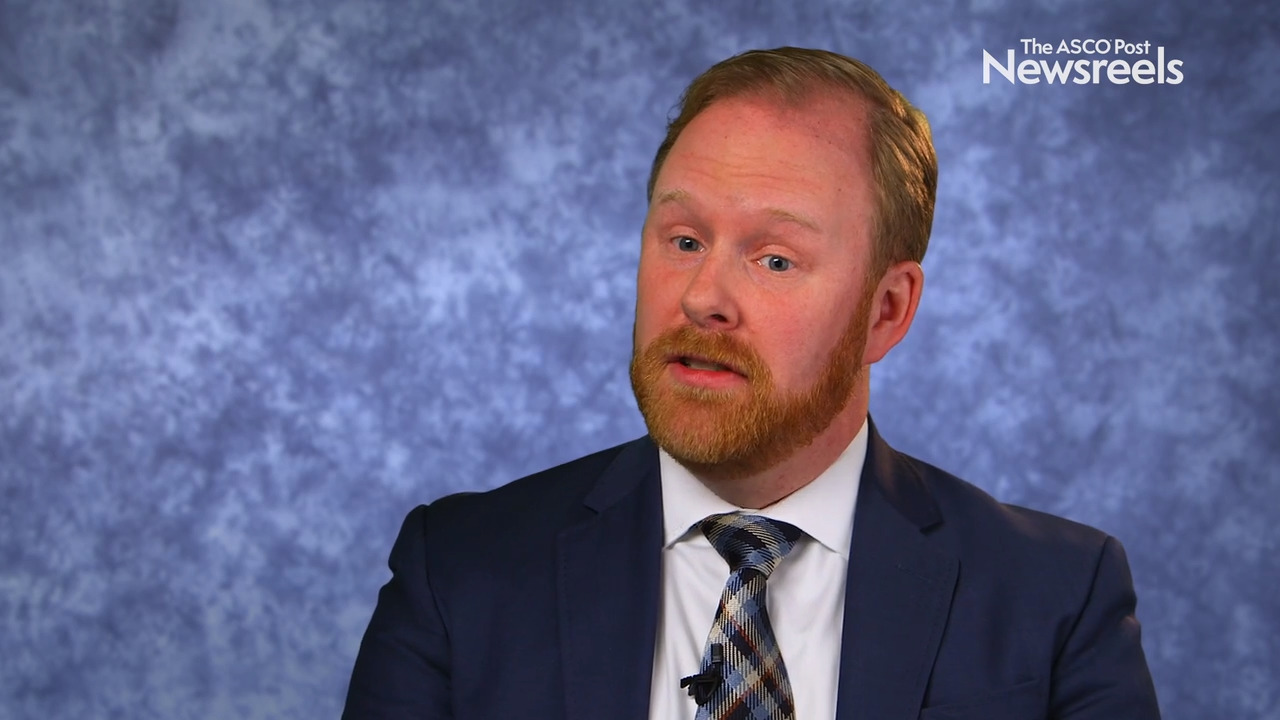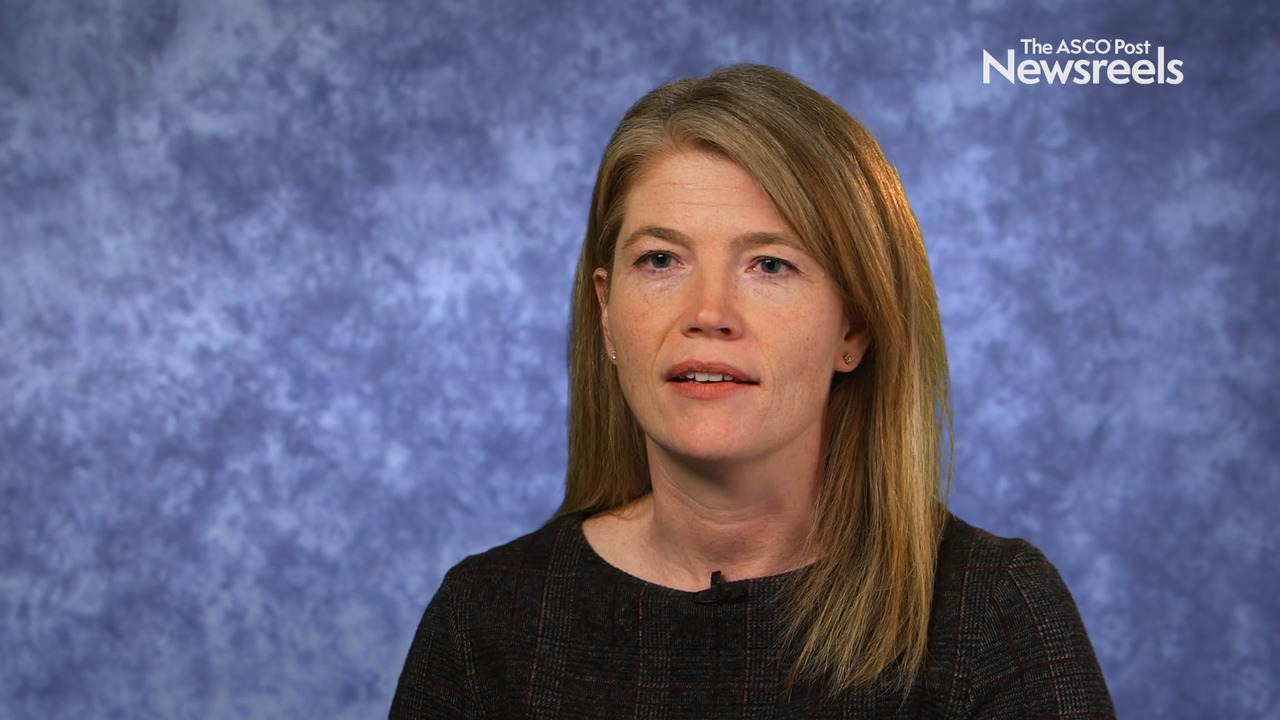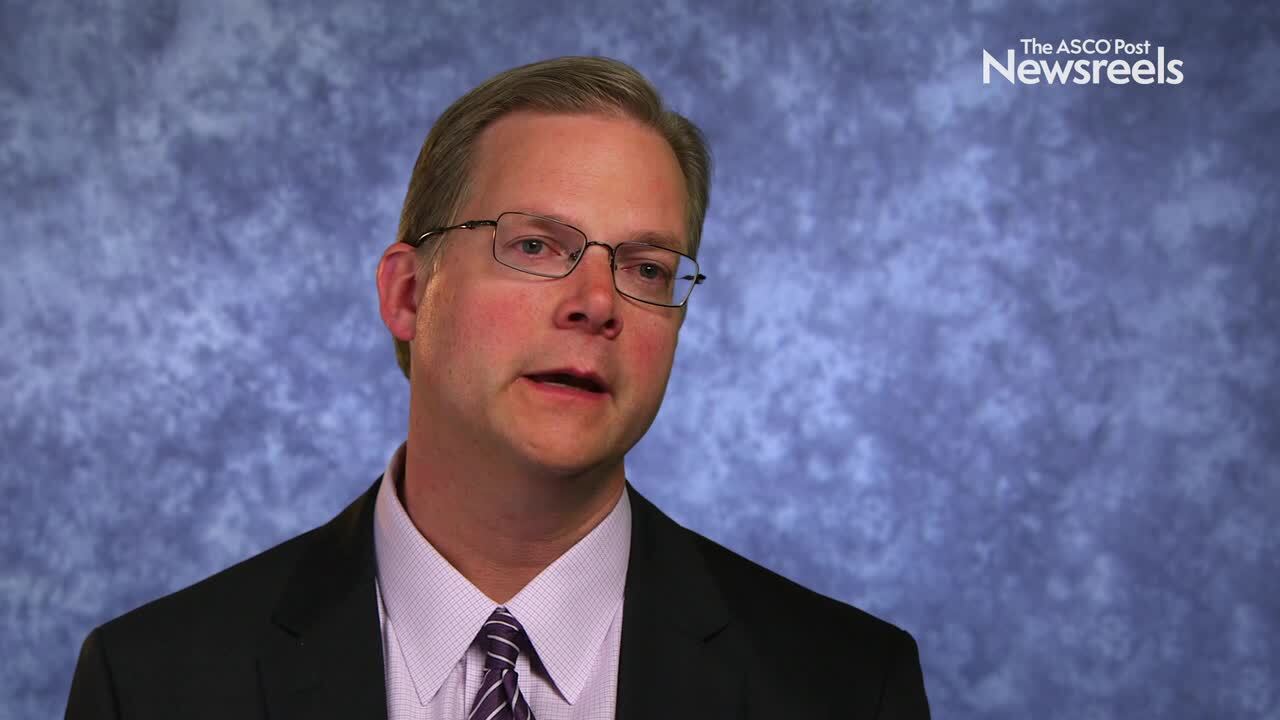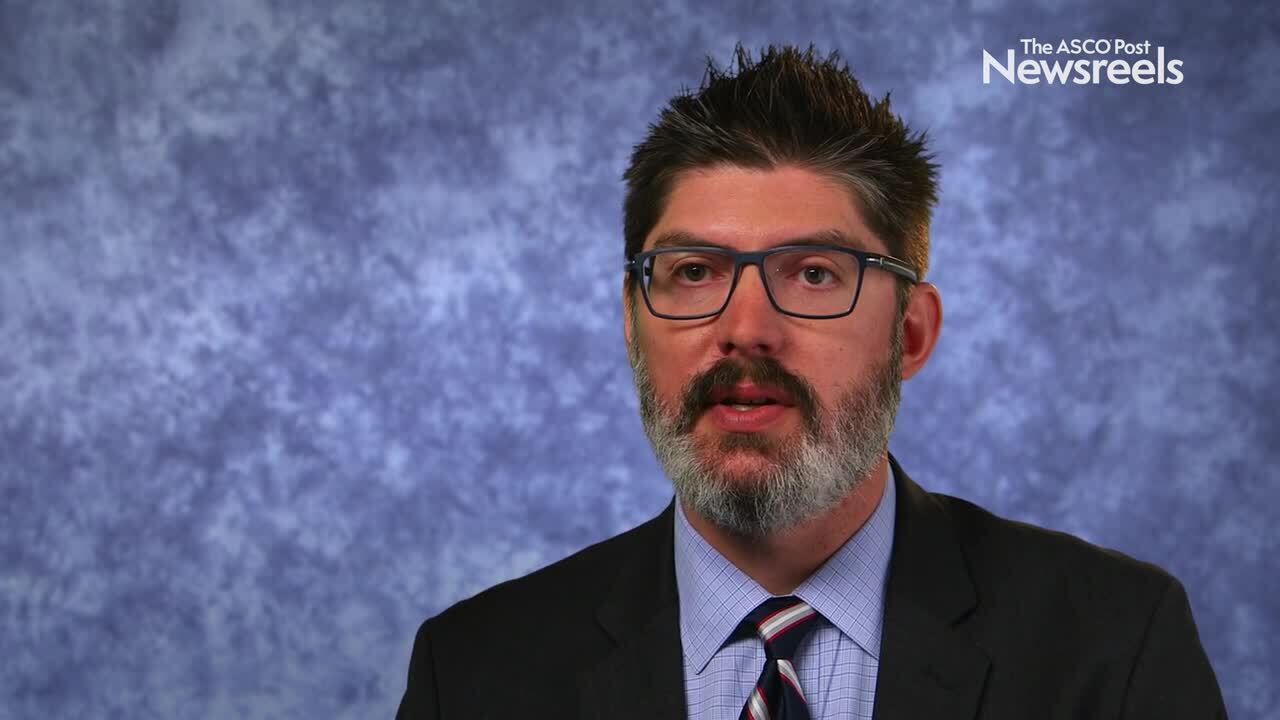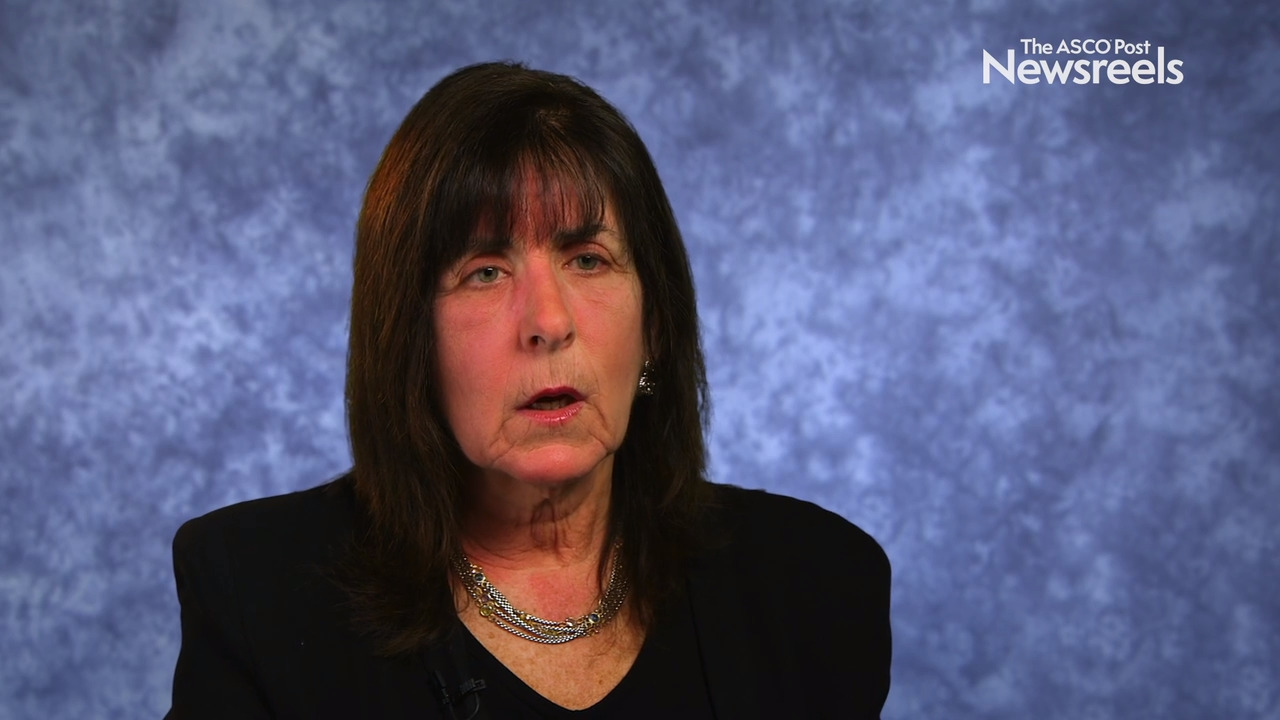Margaret A. Tempero, MD, on Pancreatic Cancer: NCCN Guidelines Updates
NCCN Annual Conference 2019
Margaret A. Tempero, MD, of the UCSF Helen Diller Family Comprehensive Cancer Center, discusses new adjuvant therapy options for patients with pancreatic cancer, and germline testing, including testing for microsatellite instability/mismatch repair genes as well as molecular analysis of all tumors.
Matthew A. Gubens, MD, of the UCSF Helen Diller Family Comprehensive Cancer Center, discusses recent updates to the NCCN Guidelines in non–small cell lung cancer, including the use of pembrolizumab as a single agent or in combination based on PD-L1 status, treatment selection in squamous and nonsquamous patients, and how mutational status affects treatment strategy.
Melinda L. Telli, MD, of the Stanford Cancer Institute, discusses the various systemic therapies for patients with early-stage hormone receptor–positive, HER2-negative disease.
Wells A. Messersmith, MD, of the University of Colorado Cancer Center, discusses results of recent clinical trials, emerging treatment options, and approaches that may improve outcomes in patients with metastatic colorectal cancer.
Frederick L. Locke, MD, of the H. Lee Moffitt Cancer Center and Research Institute, discusses recent approvals of chimeric antigen receptor T-cell therapies in leukemia and lymphoma, and how clinicians are using infrastructure, navigation, and early referrals to maximize response and minimize toxicity.
Michelle B. Riba, MD, of the University of Michigan Rogel Cancer Center, discusses the prevalence of distress in patients with cancer, the need for a quick and simple screening method to identify patients with distress, and strategies for improving integration of psychosocial care into routine cancer care.
